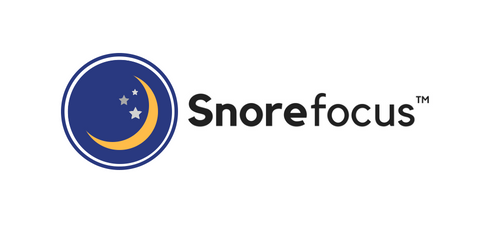3 Telltale Signs That You Snore
What is surprising is that a lot of people who snore don’t really realize it until their partner or housemate tells them. But, what if you are single or you sleep alone? What if there is no one who can tell you about your snoring problem in the first place? How will you actually know that you are snoring every time you sleep?
Well to help you out, here are the top 3 signs that you are snorer. Time to don your Sherlock Holmes outfit and crack into some detective work and find out once and for all whether or not you are a snorer! Here are the 3 telltale signs that you are a snorer.
1. Sore Throat in the Morning
How many times have you woken up with a sore throat first thing in the morning? Well you probably just assumed that your body is always trying to fight a cold or you may have even blamed it on the dry air, air conditioning or even allergies. But, did you know that your snoring can be the culprit behind the need for you to constantly sip hot tea and honey and suck on cough drops?
Just so you know, there are two key reasons behind your sore throat in the morning. The first one is the tissues that vibrate against your throat throughout the night. The constant friction can irritate these delicate tissues. Aside from that, if you breathe through your mouth, then your throat usually dries up because of the air flowing through it. You tend not to swallow enough to provide adequate moisture to the mucus membranes lining your throat, and the airflow dries them up. Add this to the fact that most homes these days are already too dry because of cooling and heating. It is not surprising that your throat is as sore as it is when you wake in the mornings.
And if it is not bad enough having to deal with a sore throat due to snoring, your sore throat can actually make your snoring worse as well in a sort of catch twenty two scenario. It can create a vicious cycle that many people tend to have to deal with. Once the tissues in the windpipe get irritated, they usually become inflamed. Sadly, this inflammation can worsen the obstruction that causes the snoring. It is specifically true in people who are overweight and those who have a narrower airway and indeed elderly people.
If you happen to be one of the many people who snore as the result of obstructed sleep apnea, your problems are much greater. The inflammation can become really bad and even very dangerous. There are even people who find it difficult to swallow since nerve damage has occurred.
So watch out for the signs of a sore throat in the morning time and if you like record the frequency and severity in your sleep journal or notebook.
2. Feelings of Lethargy and Headaches
While you might feel like you got adequate amount of sleep last night since you spent 7 to 9 hours in bed, all the interruptions and pauses in your sleep can add up and amount to deficits in both the quantity and quality of your sleep. Among the most common and albeit frequently overlooked sleep apnea symptoms is EDS or Excessive Daytime Sleepiness. EDS is best characterized by the chronic feeling of excess daytime fatigue.
The common EDS symptoms are feeling excessively tired throughout the day, having a hard time waking up in the mornings, a general lack of energy, difficulty concentrating among other people, dozing off during inappropriate times, taking or needing frequent naps that appear to relieve the symptoms.
Drowsiness during the daytime may even result in serious accidents and death particularly if the patient is working or driving or surrounded by heavy machinery or equipment. People who suffer from sleep apnea can also experience headaches. Once you stop breathing numerous times during the night time, less oxygen makes its way to the brain. Low levels of oxygen initiate blood vessel’s widening and may cause vascular headaches. Aside from excessive daytime drowsiness, the usual symptom that sleep apnea sufferers complain about is headaches. The reason behind it is that they might not be aware that they have snoring symptoms or breaks in their breathing. That brings us on to another telltale sign that you snore.
3. Frequent Pauses or Breaks in Breathing
When it comes to obstructive sleep apnea, the throat’s fatty tissues or tongue can become more relaxed during sleep and can fall backwards into the airways and restrict airflow as well as cause a person to stop breathing for several seconds. During a case of apnea, the levels of oxygen in your blood will drop. It causes the brain to wake itself from sleep, which can be long enough to jumpstart the respiratory system to work properly again and get air past through the blockage.
While the brain wakes up partially to respond to the interruption in breathing, you will remain asleep without realizing that you awoke partially. However, while you might not realize that you were awake during sleep, constant interruptions will have negative impacts on the quality and amount of sleep you get.
Snoring may happen anywhere between five to thirty times in a single hour that can last up to ten to twenty seconds at a time. People who have serious obstructive sleep apnea may experience a lot of heavy snoring every night. If you have been told that you stop breathing during your sleeping time frequently, it is time to talk with a suitably qualified person and ideally meet up with a chosen sleep specialist to discuss your circumstances.
The Bottom Line
The best way to determine if you snore at night is to ask somebody else. If you do not share a room with somebody, then ask anyone who sleeps closest to your bedroom or you can request your friend to have a sleepover. If you feel a little embarrassed and don’t really like asking anybody or there’s nobody to ask, there are some other effective ways to tell if and how badly you snore.
Recent developments in technology and product design has led to a whole new set of snore and sleep related technologies coming on stream to help people in your situation. Anti Snoring Wearable Technology and Anti Snoring Apps now enable anyone to track and monitor their sleep and snoring.
Some devices will even prevent you from snoring after detecting snoring in the room by the person wearing the device or using the app.
If you have a full night’s sleep, yet wake up and feeling exhausted, it is possible that snoring will keep you from getting a great night’s sleep. If you are suffering from allergies or a cold, it is possible that you will snore sometimes even without realizing it.
Snoring may also depend on your Sleeping Position too. Take note that you are more likely to snore if your position when sleeping is on your back rather than on your side. The only way to find out in this instance is to record yourself sleeping.
Check out the Snorefocus Blog for more useful and helpful article on sleep and snoring and please feel free to leave a comment! We look forward to hearing from you!




